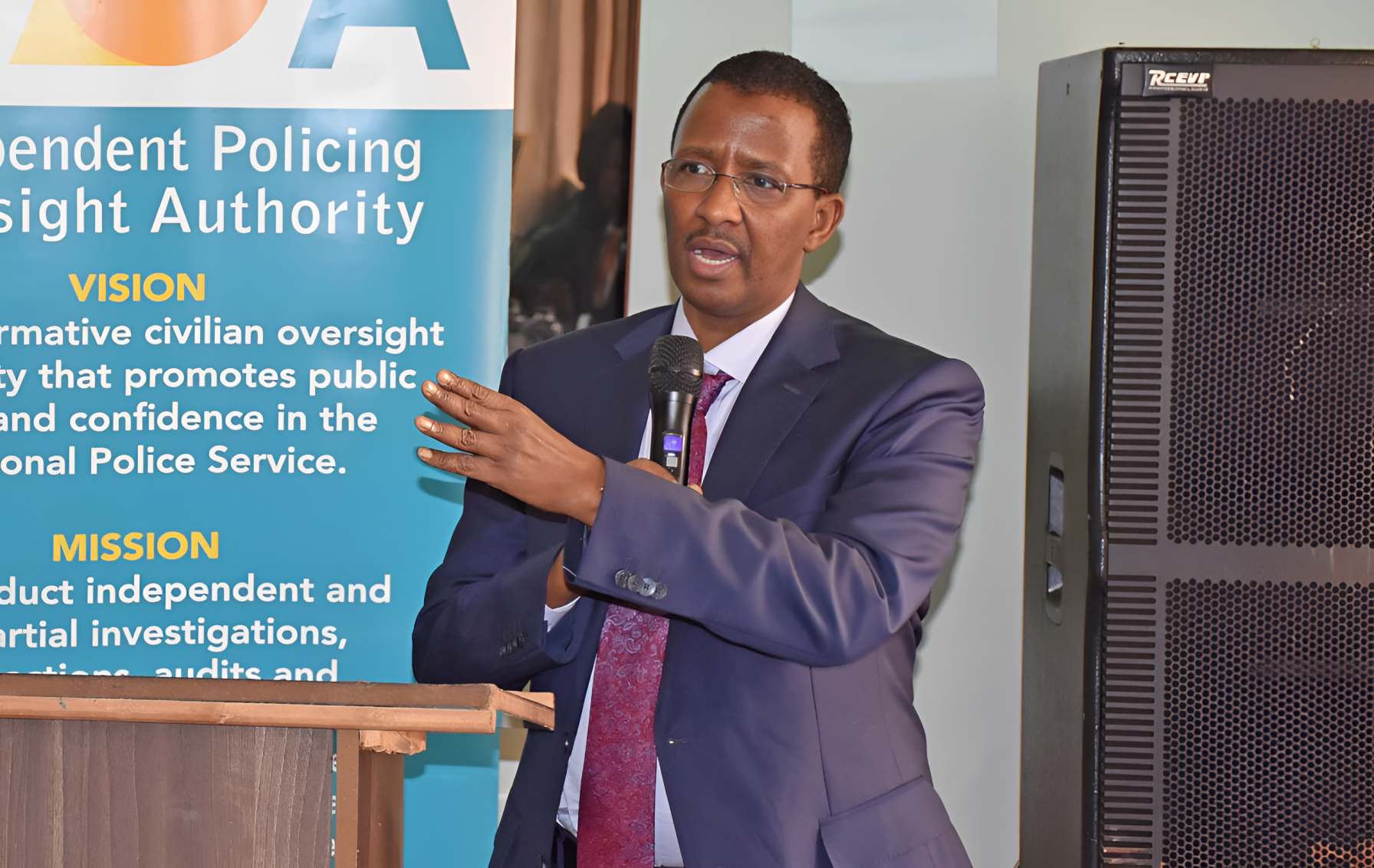Watchdog blames police, DPP for shielding rogues

Issack Hassan, who leads IPOA, said the watchdog is being denied access to firearm registers.
Efforts to hold police officers accountable for killings and disappearances are facing serious challenges due to a lack of cooperation from police and delays by prosecutors, the Independent Policing Oversight Authority has said.
The authority says it is being blocked from accessing vital records needed to complete investigations and that the situation is worsening.
Issack Hassan, who leads IPOA, said the watchdog is being denied access to firearm registers, order documents, and deployment details when investigating police conduct.
He also revealed that officers accused of wrongdoing sometimes ignore summonses to appear before investigators.
"It is a case of a lack of or outright non-cooperation by the police," Hassan said during the launch of the Missing Voices report at the ICJ Kenya offices.
He warned that such obstruction not only slows down investigations but also allows officers accused of wrongdoing to remain free and continue working in the same stations.
Hassan said the agency is also suffering from staff shortages, making its work even harder.
"We are severely understaffed, with just under 80 personnel against an approved establishment of over 700,” he stated.
The watchdog has been handling cases linked to the recent Gen Z protests and has opened 60 files so far.
Of these, investigations on 22 have been completed and sent to the Office of the Director of Public Prosecutions.
"A number of them have been returned for various reasons," Hassan said, highlighting what he described as a lack of action from the ODPP.
Human rights campaigners under the Missing Voices coalition said the situation is deeply worrying.
They said that despite many reports of police abuse, few cases have been successfully prosecuted.
The latest Missing Voices report revealed 104 incidents of extrajudicial killings in 2024. This was a drop from 118 the year before.
However, the number of enforced disappearances sharply increased, with 55 cases reported in 2024 compared to 10 in 2023 — a 450% rise.
Rights groups said enforced disappearance seems to be turning into the police’s new tactic, as it leaves no traceable evidence.
The report was backed by a coalition of organisations, including Haki Africa, Defenders Coalition, IJM, IMLU, ICJ Kenya, and the Kenya Human Rights Commission.
The Law Society of Kenya president, Fath Odhiambo, called for legal changes to prevent officers accused of abuse from continuing with normal duties.
"These officers still go to police stations, access records, arms, and interfere with investigations. Even public officers step down once they are charged with criminal cases. We demand that police officers implicated step down," she said.
The human rights groups raised alarm that no police officer has been taken to court for enforced disappearance despite the growing number of cases.
They accused the ODPP of undermining accountability by failing to prosecute officers involved in protest-related abuse.
"The challenges of investigating and prosecuting cases emanating from protests have necessitated the doctrine of command responsibility, which Missing Voices partners are pursuing in the Baby Pendo case," they said.
The groups also criticised the decision by the ODPP to drop charges against eight top police commanders who had been set for trial.
"We are concerned that the DPP dropped charges against eight senior commanders who had been lined up for prosecution. Even more worrying was the move by the DPP to expose witnesses in the charge sheet, endangering their lives," they added.
They warned that many files submitted by Ipoa about protests are either being sent back or closed without any action being taken.
This, they said, weakens accountability efforts and allows impunity to thrive within the police service.
